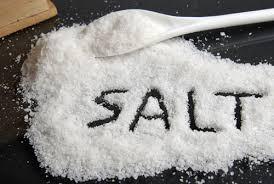The recommended salt intake for adults is no more than 2,300 milligrams a day, ideally under 1,500 milligrams, according to the American Heart Association. Americans end up consuming nearly 50 percent more than that on average, a habit that comes with health risks.
26
175 reads
CURATED FROM
IDEAS CURATED BY
I am a sucker for gadgets, stubborn and curious. Eating right and sleeping well is important to me.
The idea is part of this collection:
Learn more about health with this collection
The power of gratitude and positive thinking
Ways to improve your mood
Simple daily habits for a happier life
Related collections
Read & Learn
20x Faster
without
deepstash
with
deepstash
with
deepstash
Personalized microlearning
—
100+ Learning Journeys
—
Access to 200,000+ ideas
—
Access to the mobile app
—
Unlimited idea saving
—
—
Unlimited history
—
—
Unlimited listening to ideas
—
—
Downloading & offline access
—
—
Supercharge your mind with one idea per day
Enter your email and spend 1 minute every day to learn something new.
I agree to receive email updates
